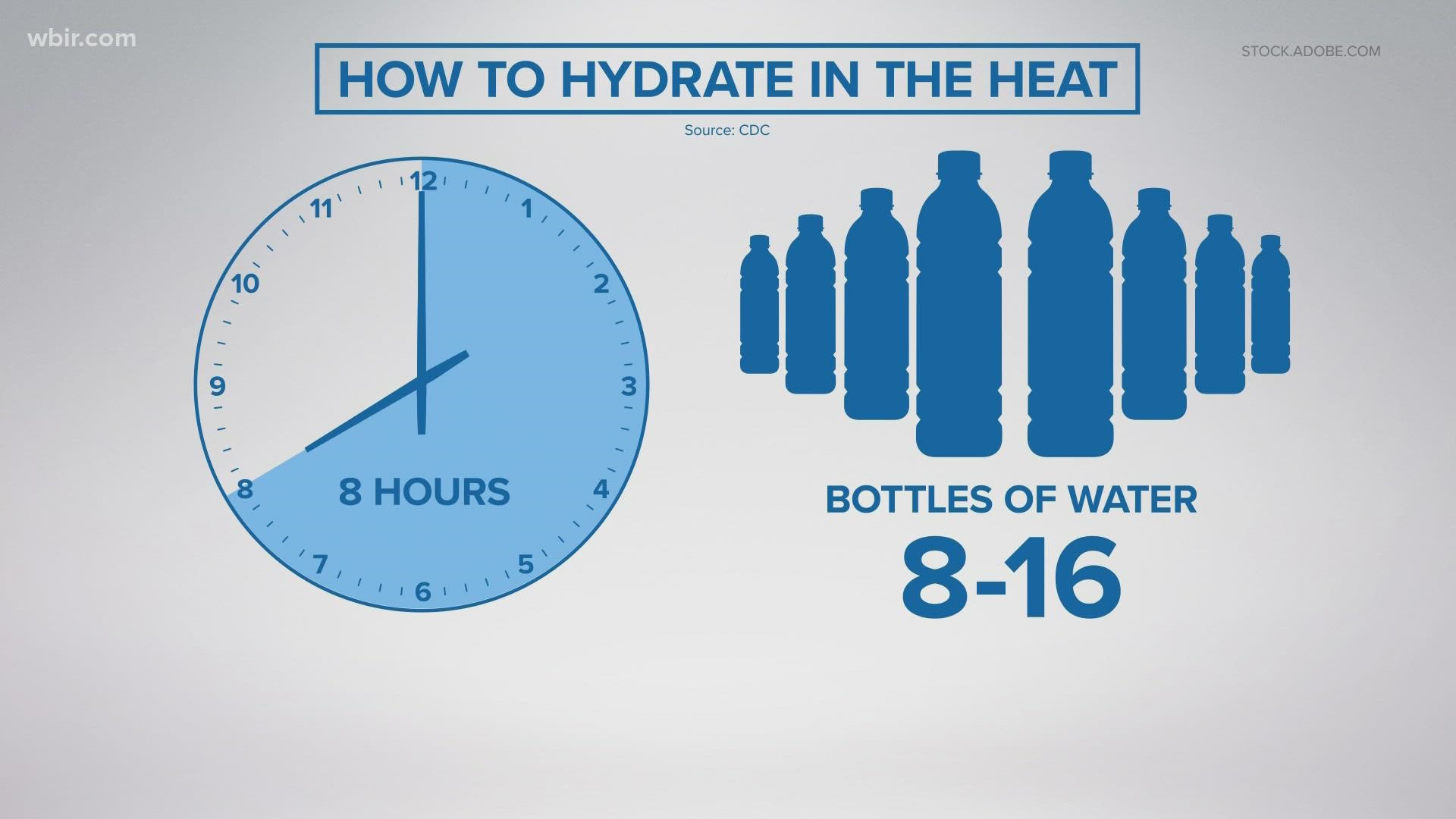KNOXVILLE, Tenn. — Drinking water is an essential part of staying healthy most of the time, but it becomes even more vital when it is hot outside.
"Our body really craves water. Every part of our body needs water," said Dr. R. Michael Green said.
Green said water is the best option to drink, instead of carbonated drinks or coffee. There are no additives a person's body needs to process to stay hydrated. He said that sports drinks, like Gatorade, are also okay since they have electrolytes.
Green urged people steer away from drinks like coffee and alcohol if they having trouble staying hydrated. Alcohol is known to dehydrate a person's body, causing issues like headaches and dizziness the morning after drinking it.
"Sometimes those drinks can trick your body into eliminating some of the water it actually needs," Green said.
Without proper hydration, people may end up paying the price. Dehydration can cause fatigue, persistent headaches and even weight gain.
Green also warned that people need to stay hydrated while outside during the hot summer months, since they can sweat out a lot more water than if they were relaxing. Just mowing the lawn can result in peopel sweating out a liter of water.
Green said peope should drink one or two 16-ounce bottles of water if they are outside for an hour doing strenuous activity.
And he said that if a person is spending the afternoon at the pool, they may need to drink 4 or 8 bottles of water to stay hydrated. And for a long day at the beach, he recommended people load a cooler with 8 to 16 bottles per person.
Green said there's an easy way to see if you are drinking enough water — counting the number of times you head to the bathroom.
"It depends on how often you go to the bathroom," Green said. "If you don't urinate a lot, that means your body is holding on to every drop of water it possibly can."
Green said the best thing you can do to stay healthy in the heat is listen to your body. Common symptoms of heat exhaustion include fatigue, headaches, nausea and dizziness.
"If you go even further than that and you completely stop sweating, your body is basically shutting down," Green said. "That's what they call heat stroke."
Green said children and senior citizens are at higher risk for dehydration. Their bodies can miss out on some key clues.

